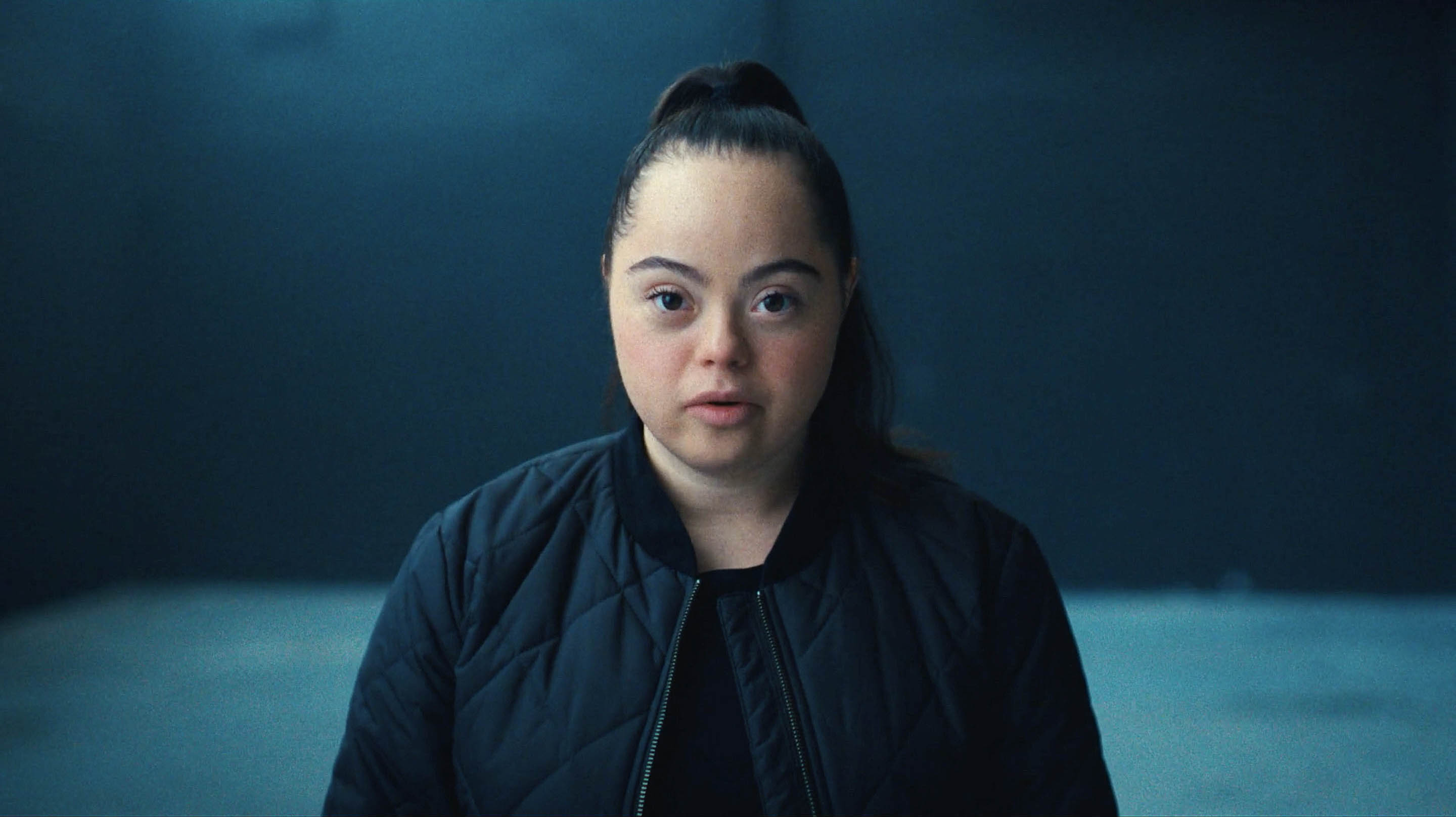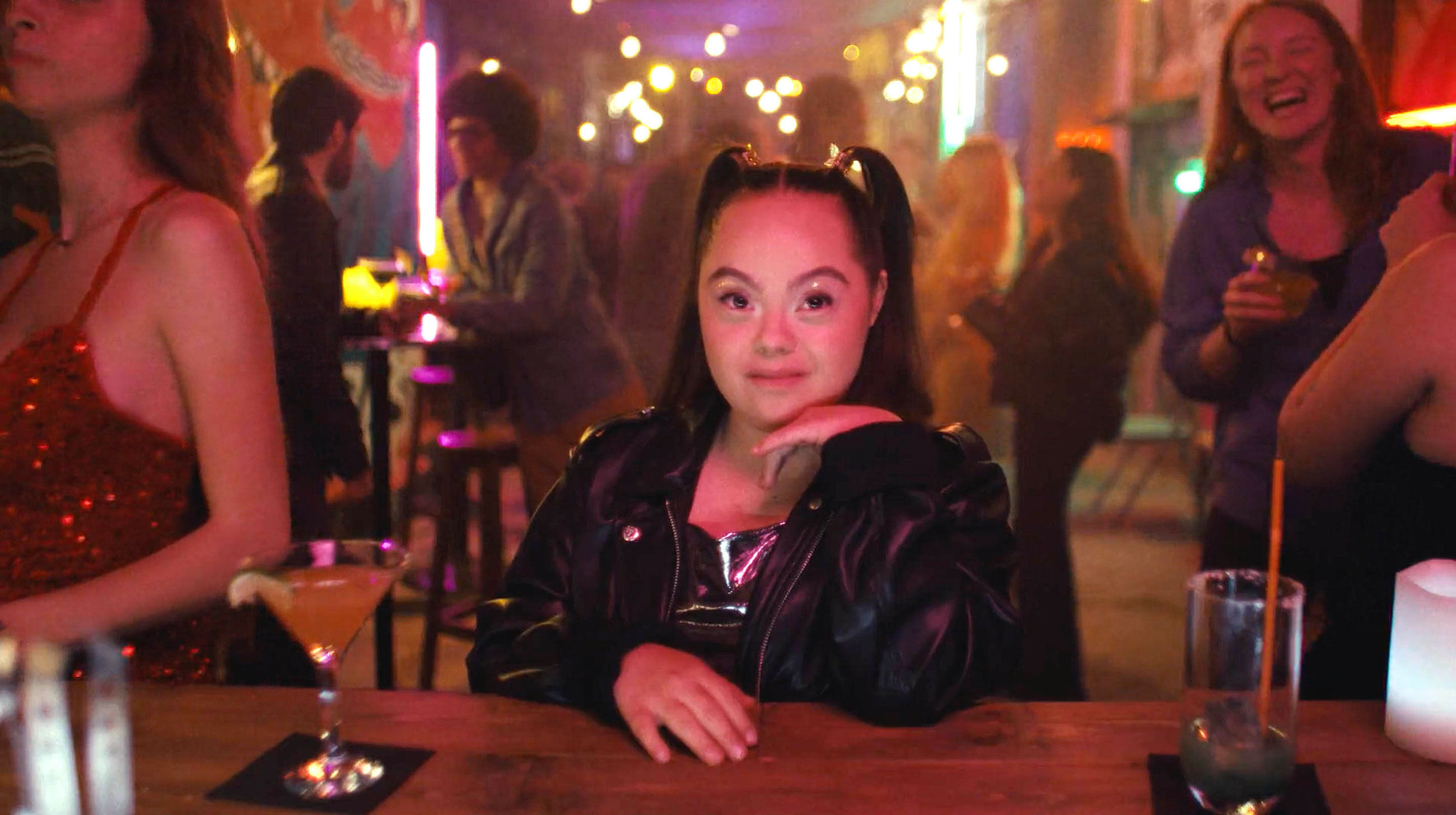

March 21, 2014 – World Down Syndrome Day
“Assume That I Can” stars Toronto’s Madison Tevlin, a young woman with Down syndrome who shines a spotlight on the challenges and low expectations others have of her and proposes a reversal of perspective.
The campaign is a call to people who have Down syndrome worldwide, urging them to share how assumptions based on negative stereotypes may have affected them.
For World Down Syndrome Day on March 21 the Canadian Down Syndrome Society (CDSS), in partnership with CoorDown, the National Coordination of Associations of People with Down Syndrome, is launching an international awareness campaign called “Assume That I Can”.
It consists of a global call to action to put an end to prejudice and support the potential of each person with Down syndrome, by flipping the script on the stereotypes, biases, and low expectations they face that can negatively affect every aspect of their lives.
These prejudices can represent an often-impassable boundary capable of limiting their ambitions, as well as opportunities at school, in the workplace, in sports, in their communities, friendships and romantic relationships.
During the World Down Syndrome Day Conference at the United Nations, Marta Sodano, a young woman with Down syndrome, spoke to the ideas of “self-fulfilling prophecy,” a psychological phenomenon first identified by U.S. sociologist Robert K. Merton in the 1940s which states that people’s assumptions and expectations affect events to such an extent that the initial prophecy comes true.
In practical terms, if a teacher, for example, thinks a student cannot understand a concept, and teaches them according to that belief, the student will fail to learn. “But in my opinion, there are no difficult or easy concepts, there is always a simple way to explain things,” said Sodano. “If I think of all the things that were not explained and taught to me, well I really get angry.”
That is the basis of the film “Assume That I Can,” in which the protagonist, a young woman with Down syndrome portrayed by Toronto native Madison Tevlin, challenges the low expectations others have of her and proposes a reversal of perspective.
Initially, those around her believe that she cannot drink a cocktail, be a boxer, study Shakespeare, live alone, or achieve important goals. But halfway through the film, there’s a twist: the protagonist forcefully invites the viewer, and society at large, to think outside the box and use the self-fulfilling prophecy positively. If you believe in me, if you trust in me, you can have a positive impact, and then, I will achieve my goals, even unexpected ones.
The film demonstrates that if teachers challenge and support their students with effective teaching strategies, they are likely to learn. When parents or caregivers believe in their children, provide diverse experiences, and encourage independence, their children are more likely to succeed.
Similarly, if employers or colleagues believe in someone with Down syndrome, create an enabling environment for learning, and offer appropriate support, that individual is more likely to excel. This shift in consciousness transcends mere advocacy for rights, inviting proactive efforts toward genuine inclusion for all.
The international campaign began with CoorDown in Italy and is being supported by several international associations launching the film simultaneously: Canadian Down Syndrome Society, National Down Syndrome Society, Global Down Syndrome Foundation, Down’s Syndrome Association UK, Down Syndrome Australia and New Zealand Down Syndrome Association with the participation of members of the Fundació Catalana Síndrome de Down.
Starting today until 21 March, CDSS, CoorDown and partners’ social media will broadcast the real experiences of people with Down syndrome and their families from all over the world, sharing examples of the types of stereotypes experienced and the biases they’ve overcome.
“Assume That I Can” will run on CDSS’s website and social media properties, and will be distributed by all its global partners. The campaign is born from a collaboration with the New York-based agency SMALL, and was produced by Indiana Production and directed by Rich Lee, with Christopher Probst as director of photography. Music was composed and produced by Stabbiolo Music.
The campaign’s official hashtags are #AssumeThatICan #EndTheStereotypes #WorldDownSyndromeDay #WDSD24
Proof of the abilities of people living with Down syndrome can be seen in the campaign’s lead actor, Madison Tevlin, a model, advocate, and actor whose credits include Mr. D, Who Do You Think I Am, hosting the red carpet at the Canadian Screen Awards, and her iconic role as Cosentino in the film Champions, starring Woody Harrelson and directed by Bobby Farrelly.
Telvin’s career began at the age of 12, when her cover of John Legend’s “All of Me” went viral. She is the first person with Down syndrome to be nominated for a Canadian Screen Award in the category of Best Host, Talk Show or Entertainment News. Madison is a member of Best Buddies International, she walked the runway as part of the Knix Confidence Tour, was the keynote speaker at the Dear Mom conference in Laguna Beach and received the Quincy Jones Exceptional Advocacy award in 2023 from the Global Down syndrome Foundation. She loves to challenge misunderstandings, by presenting her own story as a person who has passions and goals, and is capable of much more than people expect of her.
“Over the years, both CDSS and CoorDown have spearheaded numerous impactful awareness campaigns advocating for individuals with Down syndrome but also to educate the public and shine a spotlight on the remarkable abilities of those living with Down syndrome,” says Laura LaChance, Executive Director of CDSS. “This collaboration with CoorDown and other global partners broadens our reach, fostering a deeper appreciation for the capabilities of individuals with Down syndrome and challenging persistent stereotypes.”
“Changing the perspective with which we approach disability is the challenge launched by CoorDown for 2024. A new milestone that embraces the long journey made with 12 years of commitment to promoting the rights of people with Down syndrome with the Global Campaigns,” adds Antonella Falugiani, President, CoorDown. “We decided to launch a call to action, which aims to engage the whole society, not just our community, because disability really affects everyone, and everyone must be able to act to change the culture that produces discrimination.
“With the story of Assume That I Can, we show how each of us can contribute to inclusion by listening and looking at people with Down syndrome, their needs and desires without warped filters. Only in this way can we tear down the walls that still limit the lives of people with intellectual disabilities.”
CDSS hopes that on March 21st, the world will join them in creating a single, global voice calling to #EndTheStereotypes.
To learn more about how you can share the message and support the Down syndrome community on World Down Syndrome Day, visit cdss.ca/world-down-syndrome-day
About World Down Syndrome Day:
World Down Syndrome Day (WDSD) is an international awareness day officially declared by the UN General Assembly in December 2022. All are invited to observe World Down Syndrome Day to spread awareness and knowledge about Down syndrome, to create a new culture of diversity, and to promote respect and inclusion in society for all people with Down syndrome.
The choice of the date 21/3 is not accidental: Down syndrome, also known as Trisomy 21, is characterized by the presence of an extra chromosome – three instead of two – in chromosome pair No. 21 within cells.
The theme of this year’s World Day is “End the stereotypes!” Stereotypes are harmful: for people with Down syndrome and intellectual disabilities, stereotypes can stop them from being treated like other people. “We get treated like children, we are underestimated, and we are excluded. Sometimes we are treated very badly or even abused” is what real people relate to, like Andrew, a young man from New Zealand, who explains what happened to him “I used to work at a primary school. I was hoping to help with the school newsletters on the office computer. I presented my CV to the receptionist to show her what I can do. She asked me, “Who did this for you?” I told to her I did it. She did not believe that I made the CV and she did not let me help her”.
About Canadian Down Syndrome Society:
Founded in 1987, The Canadian Down Syndrome Society (CDSS) is a national non-profit organization focused upon human rights, health, social participation, inclusive education, and employment for Canadians with Down syndrome. CDSS works with self-advocates and organizations internationally to promote the abilities and contributions of people with Down syndrome and positively shape the social and policy contexts that impact the Down syndrome community. Its awareness campaigns have been honoured with 43 Cannes Lions, two Effies and the coveted One Show Penta Pencil.
CDSS also provides free resources and programs for every stage of life for individuals with Down syndrome, caregivers, medical professionals, educators, and community members. Visit www.cdss.ca to learn more.
About CoorDown ODV:
The Coordinamento delle associazioni delle persone con sindrome di Down was established in 1987 with the aim of promoting communication actions shared among the various Italian organizations engaging in the protection and promotion of the rights of people who have Down syndrome, and today it is the official representative body interacting with all Institutions. Every second Sunday of October, CoorDown promotes the National Down Syndrome Day and on 21 March of every year the World Down Syndrome Day, also by producing international communication campaigns which over the years have been awarded as many as 23 Cannes lions, of which 9 are gold, at the International Festival of Creativity.
Credits:
Campaign Title: Assume That I Can
Agency: SMALL
Executive Creative Directors: Luca Pannese, Luca Lorenzini
Creative Director: Paolo Montanari
Managing Director: Alberto Scorticati
Account Manager: Chiara Guadagnini
Production Company: Indiana Production S.p.A.
Director: Rich Lee
Director of Photography: Christopher Probst, ASC
Executive Producer: Karim Bartoletti
Senior Producer: Silvia Bergamaschi
Assistant Producer: Luca Bettinetti
1st AD: Andrew Coffing
Editor: Luca Angeleri
Original Music: Alessandro Cristofori and Diego Perugini for Stabbiolo Music
Colorist: Danilo Vittori
Post Production Audio: Bravagente
Senior Post Producer: Alga Pastorelli
Post Produzione Video: 22 Dogs
Service Company: Vivi Film
Executive Producer: Carlos Soms
Production coordinator: Nerea Soms
Art Director: John Blud
Stylist: Cris Urso
Comments